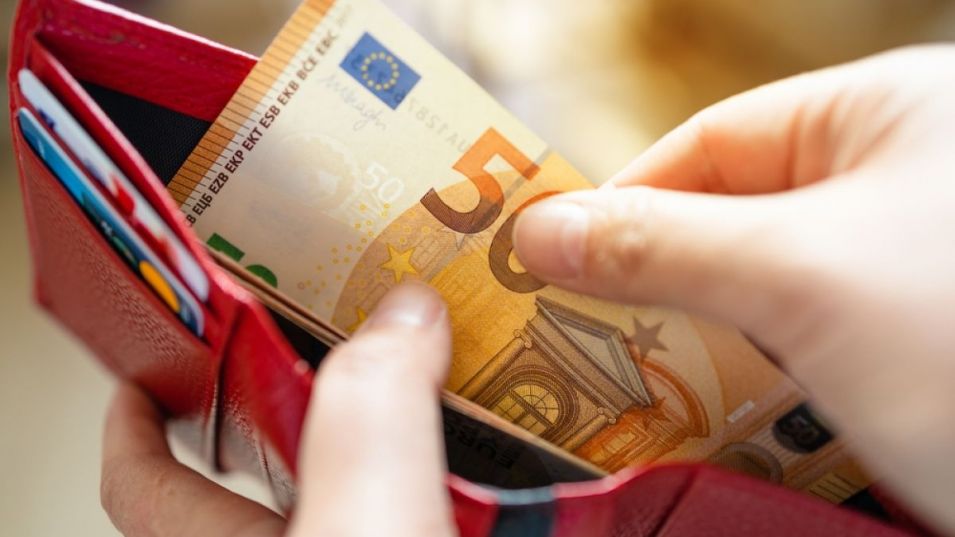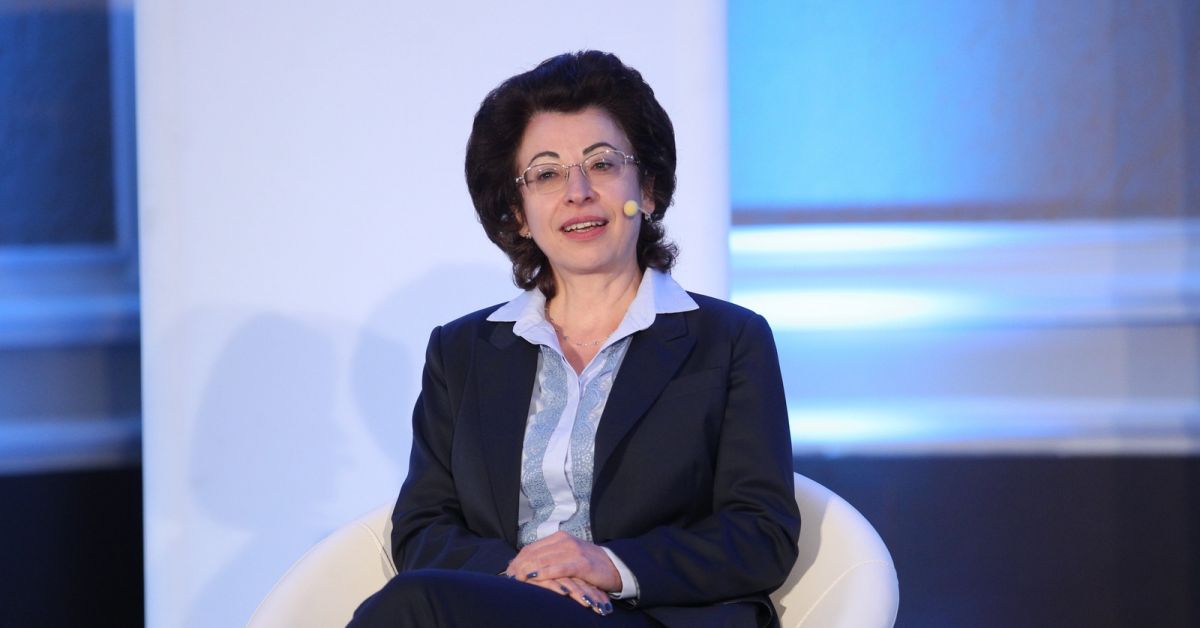From the autumn, the test use of a digital single currency can begin
The ECB will not have access to people’s personal data and the payments they make
They are proposing legislation in the summer
With a digital euro we will be able to pay, as we now shop with banknotes and coins. But we’ll carry it on our cell phone, not in our purse.
There will be a limit on the funds that people will be able to hold in a digital euro account. This was said by Nina Stoyanova, deputy governor of the BNB, head of the “Bankovo” department, at the opening of the financial forum “Innovations”, organized by the Bank of the Year Association. Representatives of the European Central Bank (ECB) say that this ceiling could be 3,000 euros, which is close to the average gross salary in the euro area.
The idea behind this cap is for the digital euro to be used for payments, not for people and businesses to hold their savings in digital format. If people were given the option to hold all their money in digital euro form and access it directly through their mobile phone, much of the money in the banks could be withdrawn, with no one benefiting.
The easiest way to pay with digital euro will be through a mobile phone application. The ECB has been working on the introduction of a digital euro for several years. “As a future participant in the eurozone, we are following the digital euro project of the European Central Bank, whose exploratory phase ends in October this year,” said Nina Stoyanova.
The ECB must then decide whether to go to the next stage and launch a pilot use of a digital euro. This testing phase could last two or three years, says Fabio Panetta, a member of the ECB’s Executive Board. If the Governing Council of the ECB and the European legislators – the member states and members of the European Parliament – agree, we can launch the digital euro in three or four years, he adds.
Work is also underway on a specific legislative proposal of the European Commission for the digital euro, which may appear as early as the summer of this year. It is expected to explain the possible status of the digital euro as legal tender, said Nina Stoyanova.
The idea is that the digital euro can be used in five specific payment cases, namely: person-to-person payments made online and offline; payments initiated in stores by the payer or the payee; and e-commerce payments. A number of private companies are also working on the project to introduce a digital euro, which are discussing the various technical aspects with the ECB. It is already clear that the introduction of a digital euro is technically completely real, and the most difficult thing is to make an offline payment between people – when they do not have access to the Internet. The ECB’s aim is to ensure that all citizens and businesses can benefit from a basic service that enables payments between citizens, retailers and public authorities. Europeans will, for example, be able to use the digital euro to pay online or in shops, send money to loved ones or pay their taxes.
The idea of the digital euro is not to replace cash. But people are using less and less cash. Therefore, central banks around the world are working to offer people an alternative payment option without paper money. Using the digital euro should be free, just like shopping with banknotes and coins. But just as there are now fees for cash withdrawals, there may be fees for exchanging paper money for digital euros.
The European Central Bank will not have access to citizens’ personal data, such as where and what they pay for. Thus, the digital euro will resemble paper money, as opposed to paying through a bank account. The ECB will issue the digital euro, but not distribute it. This will be the task of financial intermediaries – banks or other financial institutions. To process digital euro payments, the Eurosystem (which includes the ECB and the central banks of the eurozone countries) has developed a centralized settlement mechanism (N€XT). Tests showed that this model enables fast and efficient validation of transactions while protecting users’ privacy by not revealing their payment patterns or account balances to the Eurosystem, the ECB said in a report.
They want to overtake private companies
China is already testing a digital yuan
They use less and less cash
Research by the Bank for International Settlements shows that around 90% of central banks around the world are exploring the potential of digital currencies, and 14% are developing pilot projects. Of particular interest is the development of this project in China over the past few years and the test use of the digital yuan in certain regions of the country.
The development of central bank digital currencies is driven by significant factors, one of which is that cash is used less and less as a means of payment. Central banks must respond to the ongoing digital transformation of business and the evolution of payment instruments, as well as the possibility that global companies with a significant number of customers will develop their own private digital means of payment, such as cryptocurrencies.
Money protection
New euro banknotes with celebrities are being released
They will be harder to fake
Bridges and arches are currently depicted on euro banknotes. The new banknotes may feature famous Europeans.
The European Central Bank is working on issuing a new series of high-tech banknotes to prevent counterfeiting and reduce their impact on the environment. We will make the notes available to citizens as long as there is demand, Fabio Panetta, a member of the ECB’s Executive Board, told French media outlet Les Echos. “We want people to connect with the new series of banknotes we are working on. We are considering a range of topics including European culture and will soon be consulting the wider public. Personally, I would like famous Europeans to be represented on our future banknotes”, says Fabio Panetta. Bridges and arches are currently depicted on euro banknotes.
They detect fraud attempts in milliseconds
There will be an application in Bulgarian
They are looking for a balance between security and privacy

The digital euro will be able to be used both for payments between people and when shopping in a store.
Payment with digital euro will be made through an application in Bulgarian, which can be downloaded to the mobile phone. Most companies participating in the ECB’s studies on the introduction of the digital euro recommend using the native languages of the countries where it will be introduced. When Bulgaria enters the Eurozone, all payments in the country will be made in euros. The working date for entering the eurozone is January 1, 2025. And when the digital euro is launched, we will be able to use it as well.
The same phone app will be used for online and offline payments to make it easier for users. Although the technical way of making the payment itself will be different depending on whether one has internet access or not.
A very important aspect of the introduction of the digital euro is the prevention of fraud. The companies participating in the ECB’s surveys believe that the available technologies enable the detection and prevention of fraud attempts.
Several companies have confirmed the technical capability to perform real-time fraud risk assessments within milliseconds, the ECB said in a report.
In developing the rules for the use of the euro, a balance will need to be found between ensuring data privacy and combating money laundering and terrorist financing. This balance will be determined by the legislator. In the current working-level discussions at the ECB, some want to prioritize privacy, while others want to prioritize the fight against illegal activities.
They must be written clearly
Prices in BGN and EUR for a year and a half
We will pay with both currencies for one month

For one month after our entry into the Eurozone, we will be able to pay with BGN and Euro at the same time.
The prices of all goods and services will have to be written simultaneously in BGN and EUR for at least a year and a half, when our country enters the Eurozone. The working date for the introduction of the euro in Bulgaria is January 1, 2025.
The prices of all goods and services must be announced in BGN and Euros one month after the official decision of the European institutions for our entry into the Eurozone, says the draft law on the introduction of the Euro, which is being prepared by the Ministry of Finance. If we fulfill all the criteria, this is expected to happen in the spring of 2024. Thus, as early as May or June next year, the prices may be in levs and euros. Of course, this will happen if we meet the inflation and budget deficit criteria.
The period of double marking of prices will last 12 months after the introduction of the euro, the draft law provides.
Thus, until the end of 2025, the labels of the goods will have to have prices in euros and BGN. The aim is for people to easily be able to judge whether there is any price increase after the introduction of the euro, and if there is, to be able to decide whether to buy the relevant item.
During the period of double announcement, the prices of goods and services in BGN and in EUR must be placed next to each other, written clearly, legibly, unambiguously and easily understood, with the same font size, in a way that does not mislead consumers , it says in the draft law. The two prices must be accompanied by a distinctive sign allowing them to be easily identified.
After our entry into the Eurozone, we will be able to pay in BGN and Euro at the same time for one month. And the change in the shops will have to be returned only in euros.
Forum In Sofia
BNB hosted a conference on money

Kalin Hristov, deputy governor of the Bulgarian National Bank
On June 7 and 8, the General Assembly of the European Banknote Conference (EBC), jointly organized by the Bulgarian National Bank and the EBC, was held in Sofia. The European Banknote Conference is an association of a group of European central banks and banknote printers, which aims to improve the quality and protection of banknotes and ensure efficiency in their production, transport and distribution. Within the framework of the EBC General Assembly, a conference on the topic “Evolution of banknotes in the digital world” was held, in which representatives of central banks, banknote manufacturers, government agencies, suppliers and manufacturers of banknote paper, manufacturers of security inks, designers participated of banknotes and companies for specialized transport and handling of banknotes. On the Bulgarian side, presentations at the conference were made by Kalin Hristov, deputy governor of the Bulgarian National Bank, head of the “Issuance” department, and Miroslav Vichev, CEO of “BORIKA” JSC.
2023-06-10 05:55:51
#hold #digital #euros #Labor


